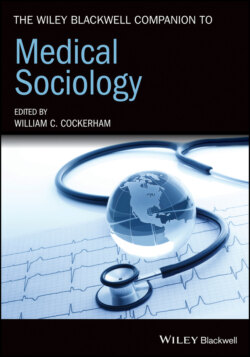Читать книгу The Wiley Blackwell Companion to Medical Sociology - Группа авторов - Страница 60
CULTURE AND HEALTH BEHAVIOR
ОглавлениеThe conceptual insights of the classic and contemporary sociologists and anthropologists on the significance of culture are confirmed by research on health behavior over the past five decades. A complete review of the vast body of sociological and anthropological literature dealing with the influence of culture upon the individual’s health behavior is a formidable task beyond the scope of this chapter. Instead, I will highlight the nuances and significance of cultural variations in health behavior by discussing relevant findings within the framework of three types of health-related behavior, namely, preventive health behavior, illness behavior, and sick-role behavior. The two former concepts were proposed by Kasl and Cobb (1966). The concept of sick-role behavior was formulated by Talcott Parsons (1951: 436–8).
Preventive health behavior refers to the activity of a person who believes he or she is healthy for the purpose of preventing illness (Kasl and Cobb 1966: 246). Kasl and Cobb labeled this “health behavior” but the term preventive differentiates it clearly from the other two types of health-related behavior. Kasl and Cobb (1966: 246) defined illness behavior as the activity undertaken by a person who feels ill for the purpose of defining the illness and seeking a solution. In the sense intended for this discussion, illness behavior encompasses the time span between a person’s first awareness of symptoms and his or her decision to seek expert assistance or “technically competent” help (to borrow Parsons’ [1951: 437] term). Illness behavior, thus defined, includes activities such as initial self-medication or self-treatment and discussion of the problem with non-expert family members and others within one’s primary or informal social network. Sick-rolebehavior is the activity undertaken by a person who considers himself or herself ill for the purpose of getting well (based on Parsons 1951: 436–8). Sick-role behavior is typically preceded by illness behavior and encompasses the sick person’s formal response to symptoms, that is, the seeking of what he or she perceives as “technically competent” help. The sick person may seek technically competent or expert advice from whoever he or she perceives as or believes to be an expert including a traditional healer, modern medical practitioners, or a combination of these. Sick-role behavior also includes the relation between patient and healer, and the subsequent activity of the person as a patient.
